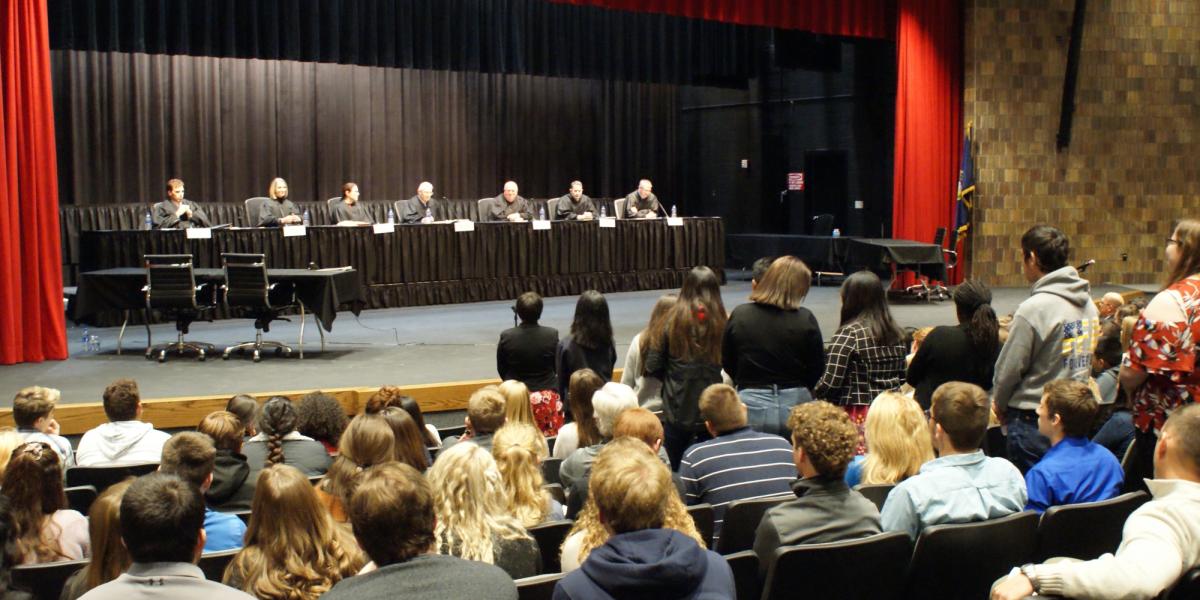Nontraditional Students Attend Arguments in South Sioux
Unique to the Supreme Court traveling argument session South Sioux City were a group of students who were notably nontraditional in nature: a group of adult learners working on their interpretation skills.
The Court session, held November 1, 2019, is part of the Supreme Court Justice’s outreach and education programming, which generally attracts high school students, community dignitaries, and some members of the general public.
The students who attended the South Sioux arguments are participants in a court interpreter training course that meets at Northeast Community College in Norfolk. The college also has a satellite office in South Sioux City. Julie Clark, who teaches the course and attended with her class noted, “The students were partially in awe of the governmental processes we enjoy in our country and partially overwhelmed at all they feel they need to learn.” According to Clark, the students, who are all non-native speakers, had reviewed the case files before attending arguments but “didn’t truly appreciate the magnitude of the day until they saw and heard the process.”
Arguments in two cases began with an educational program at 10:00 a.m. led by County Court Judge Kurt Rager, a graduate of South Sioux High School. An open question and answer session with students followed the arguments.
The visit marks the first time that the Supreme Court has heard arguments in South Sioux City.
Before the event, Principal Ashley O’Dell remarked, “South Sioux City High School is very honored to host the Nebraska Supreme Court in our school district. We are grateful for the partnership with the Nebraska State Bar Foundation as it provides our students, community members, and local dignitaries with an opportunity to witness an event of this magnitude. We recognize the importance that civics and court decisions have on our current reality and on our future.”
Interpreter educator, Clark, recalled that her adult-learners were “very overwhelmed” with some of the vocabulary – including references to the Indian Child Welfare Act that was casually referred to as ICWA throughout arguments. “We have worked very hard on vocabulary, but as an instructor, it was just a wonderful learning experience and one I am grateful we had prior to their (certified interpreter) test on November 15.”
Sioux City Journal: Students learn about Nebraska Supreme Court in rare South Sioux City stop
KITV: Nebraska Supreme Court convenes in South Sioux City

